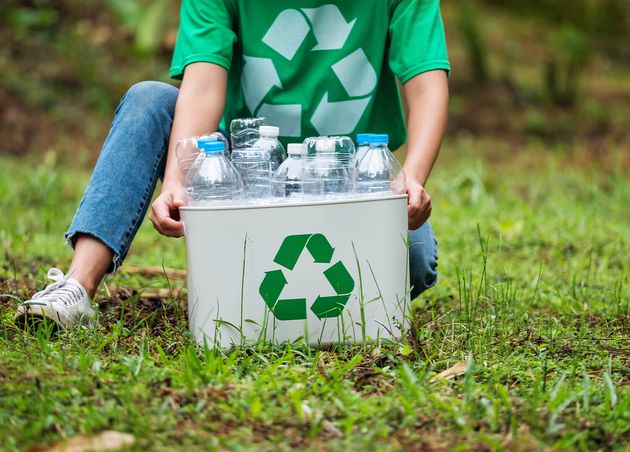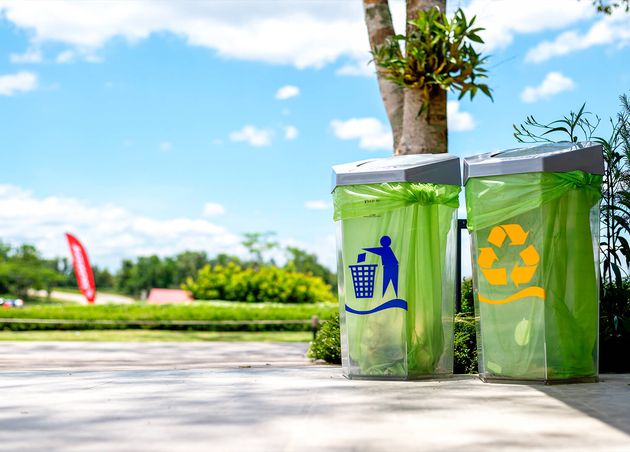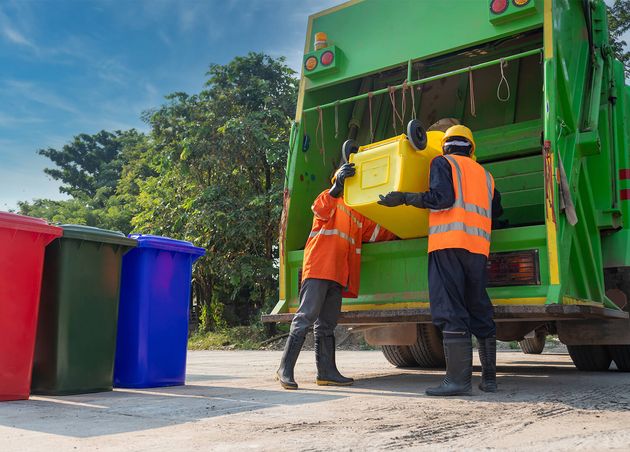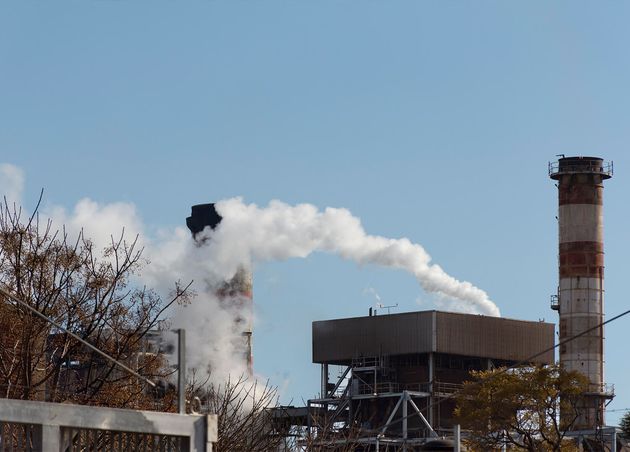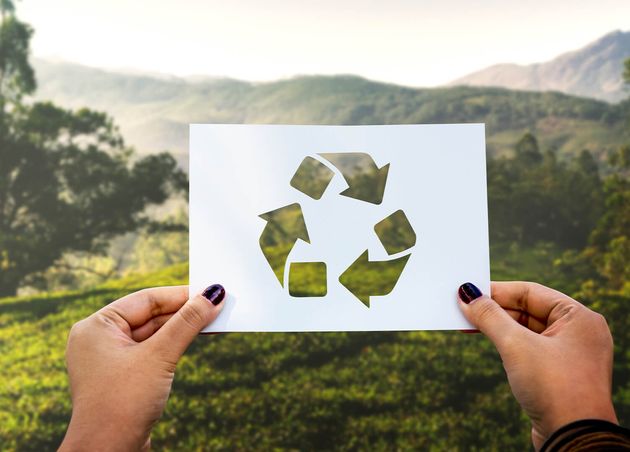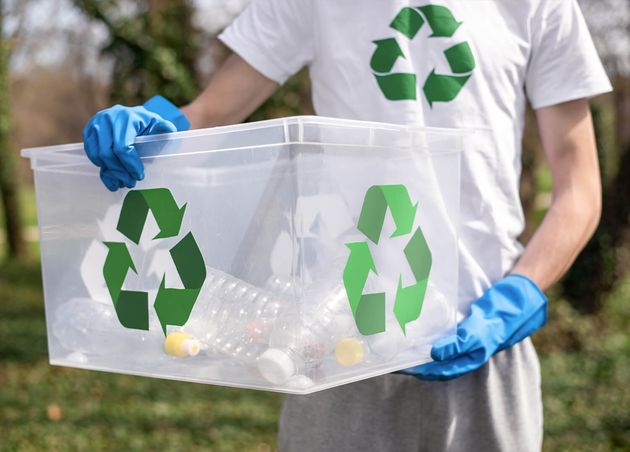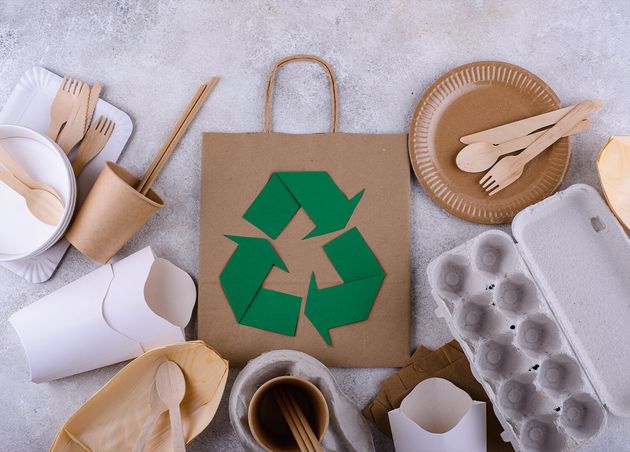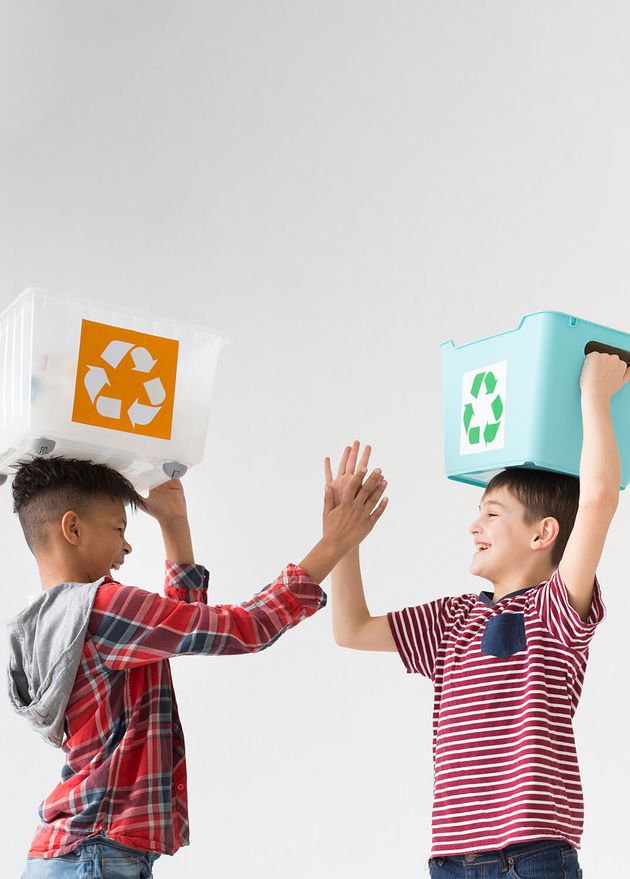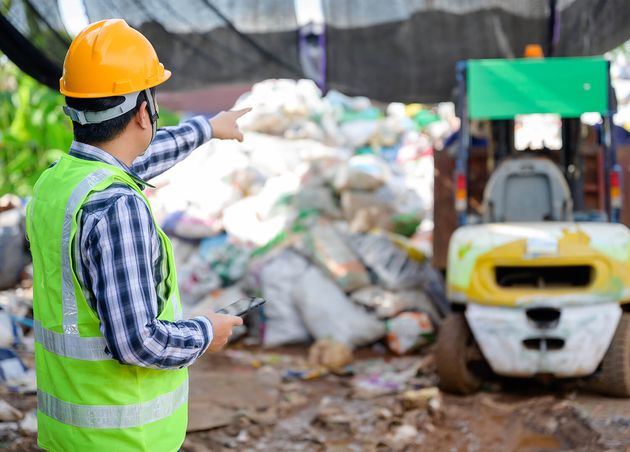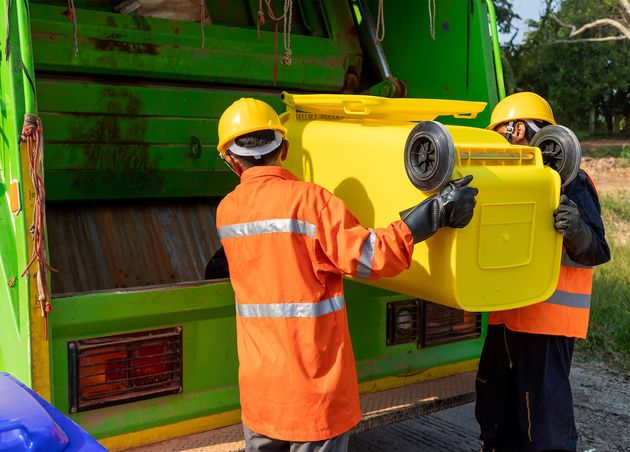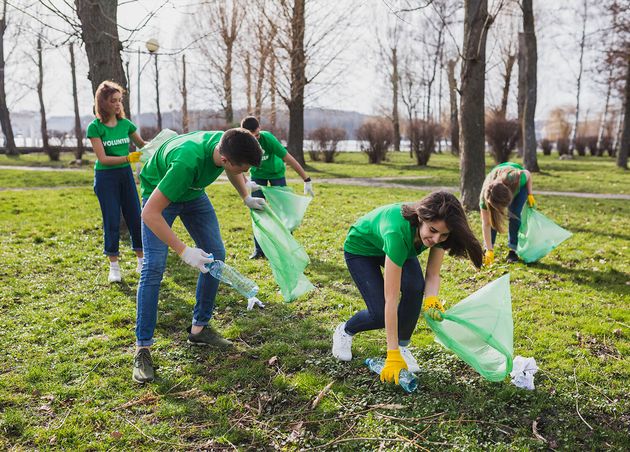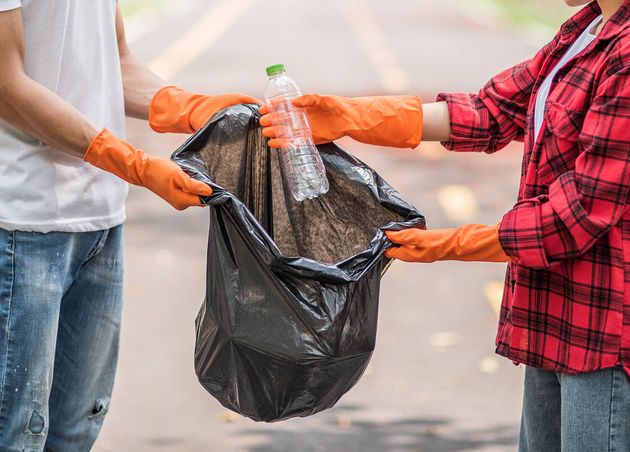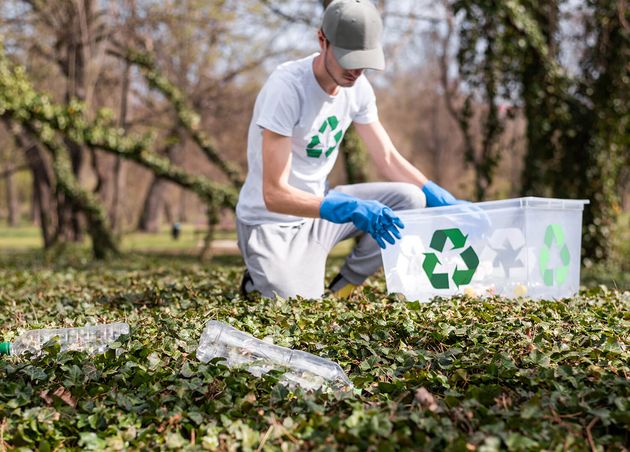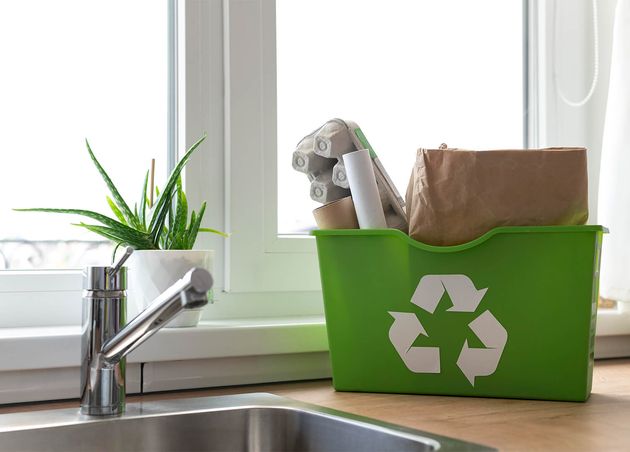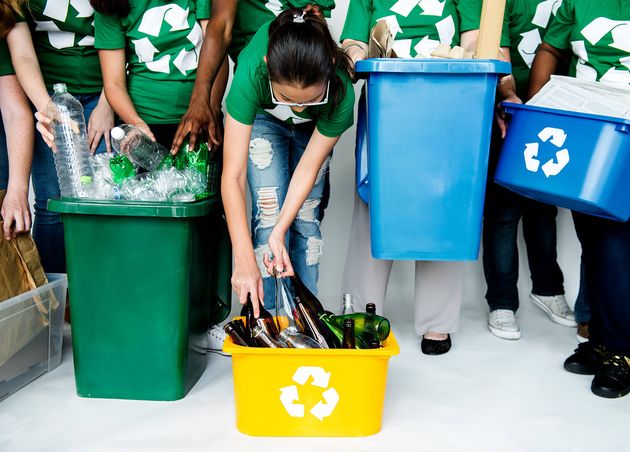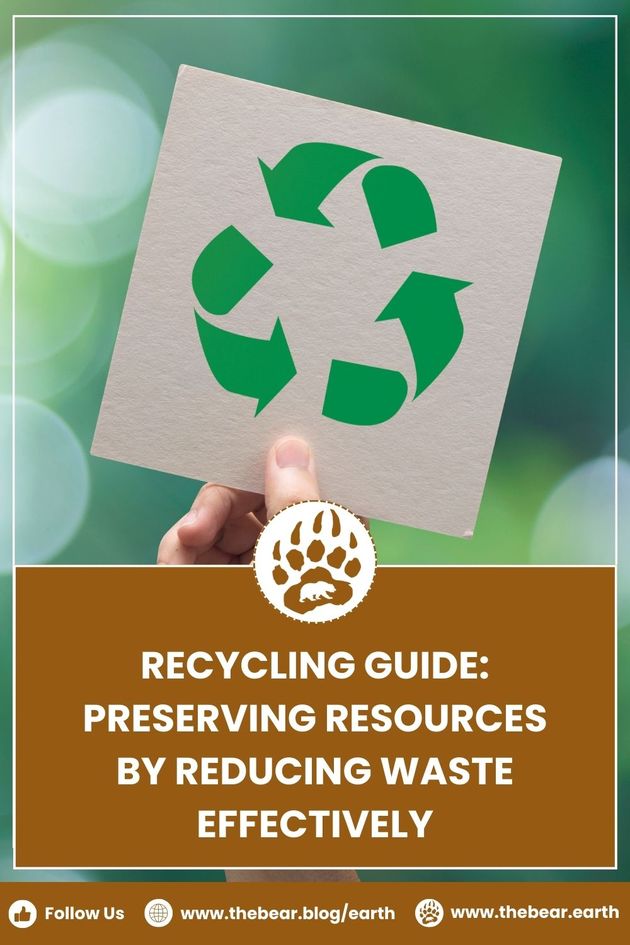Recycling Guide: Preserving Resources by Reducing Waste Effectively
Due to swift urbanization and population expansion, the need for food, clothing, and shelter is on the rise. Large-scale production is done in factories, using many resources to meet that demand 🌎 As a result, the massive accumulation of solid waste in densely populated cities and widespread air and water pollution have increased.
For that reason, the discussion of recycling has spread worldwide. So, are you also interested in reducing waste and preserving resources? ♻️ This post will undoubtedly enlighten you in this regard. Collecting and converting waste into usable and new materials is called recycling, one of the successful sustainable development components.
Recycling and waste reduction have become critical factors for environmental sustainability and the well-being of our planet, so it has become the duty of every citizen in society 🌳 For this, we, as citizens, can perform various tasks. Solid waste management can be done for a sustainable community without allowing discarded items to accumulate in garbage piles.
So, how do you recycle? What are our duties and responsibilities? What do we and society get from doing so? 🌱 Come dive with us into the ocean of knowledge to find answers to all these questions.
🌏 Eco Fact!
What is the point of recycling? The basic answer is that it's excellent for the environment since it allows us to reuse scarce natural resources while reducing waste.
Why is Recycling Important?
Recycling is crucial because businesses would have to manufacture many more materials if we did not recycle ♻️ Extracting and processing the raw materials needed to manufacture the items we buy today consumes a lot of energy, resulting in pollution and disruption of environmental sustainability.
Making new things frequently necessitates the use of resources and energy. These resources can help conserve precious natural resources when made from recycled materials 🌱 We can drastically minimize the environmental impact of these materials by recycling them, resulting in cleaner, healthier, and more sustainable human activities on our planet.
Recycling is one of the six R's of Sustainability, which provide a framework for being more environmentally conscious and developing a more sustainable lifestyle 🌎 Recycling materials contributes to environmental sustainability and indirectly improves the economy.
🌏 Eco Trivia!
Did you know that the United States now recycles around 32% of its solid waste? That is a significant gain from 20 years ago when the United States recycled only 10% of its waste!
Essential Process of Recycling
It all starts at your home. You may contribute to a sustainable environment by reusing outdated products rather than tossing them away. This is known as the Reduce, Reuse, and Recycle idea. Recycling is an ongoing process symbolized by the iconic three arrows ♻️ Each arrow represents a separate stage of the procedure.
Let us now look at how to exercise the recycling process.
- Collection and Processing
- The collection process covers curbside pickup, drop-off locations, and return or deposit programs. As stated, the number of items made using recycled components is substantial.
- The collection process covers curbside pickup, drop-off locations, and return or deposit programs. As stated, the number of items made using recycled components is substantial.
- Manufacturing
- Manufacturing facilities benefit from lower costs since they are provided with recycled raw materials due to sustainable waste recycling.
- Manufacturing facilities benefit from lower costs since they are provided with recycled raw materials due to sustainable waste recycling.
- Purchasing New Products Made from the Recycling Process
- When a recycled product is purchased, we, as a community, contribute to closing the continuous cycle.
- Furthermore, by requesting one, we contribute to restarting the cycle.
Effective Recycling Techniques
- Segregating Waste
- Choosing Biodegradable Products
- Solid Waste Management
- Composting
What are the Benefits of Recycling?
#1 Reduces Air Pollution and CO2 Emissions
Various raw materials may be produced more quickly and efficiently through recycling ♻️ Overall, recycling materials have less pollution in the air and emit fewer CO2 gases into the environment than utilizing raw materials.
Recycling provides a significant environmental advantage by lowering air and water pollution and conserving energy 🌎 It also decreases greenhouse gases such as carbon dioxide, methane, nitrous oxide, and chlorofluorocarbons, contributing to global warming.
#2 A Healthier Ecosystem for Humans and Wildlife
Recycling contributes to a healthy ecology for both humans and animals alike. For example, recycling animal waste by fertilizing gardens and plantings contributes to a neat, clean environment 🌳 Wastewater, chemicals, and other dangerous substances from manufacturers may pollute rivers and lakes, wildlife habitats, and coastline waterways.
These harmful materials can enhance the ground on nearby farms after being converted into compost 🌱 This contributes to preserving an environment that is safe for humans and wildlife.
#3 Conserves the Planet’s Natural Resources
Recycling minimizes the demand for fresh resources to be extracted from our world 🌎 This is one of the most evident advantages of recycling. It helps protect non-renewable resources by reducing the environmental impact of obtaining fresh substances from the earth.
#4 Saves Energy
Recycling generally uses less energy than manufacturing new items from raw resources. Manufacturing items using recycled materials may save significant energy while lowering greenhouse emissions and our dependence on fossil fuels 🌱 Producing goods using recycled resources rather than raw materials resulted in decreased usage of coal, oil, and natural gas.
#5 Saves Money
The money saved by recycling is not included in the cost of making new things. This implies that recycled items are less expensive than the resources used to manufacture new items 🌳 This means using recycled materials, which helps keep the pricing of many things competitive.
#6 Promotes Respect for the Environment
Recycling has had a significant impact on developing more environmentally sensitive behavior. People become more conscious of the necessity of environmental stewardship in recycling ♻️ They get a stronger appreciation for the value of maintaining natural resources.
#7 Reduces Waste Incineration and Landfill Waste
Recycling and garbage reduction programs help minimize the quantity of garbage disposed of in landfills. Waste dumps are unattractive, pollute the environment, and generate toxic gasses 🌎 It reduces landfills' ecological impact and prolongs existing landfills' life by diverting garbage from them.
Pollution is caused by combusting items such as cardboard, plastic, etc. Furthermore, we end up with a certain amount of harmful chemicals because of burning 🌱 Recycling these materials reduces the demand for incinerators and trash dumps, resulting in a cleaner environment.
#8 Helps the Economy and Creates Jobs
Recycling and trash reduction efforts may boost economies and create new jobs 🌱 The recycling sector employs people who collect, process, manufacture, and distribute reused supplies and commodities.
Recycling is a vital part of a circular economy, which strives to reduce waste output while increasing the efficiency of resources 🌳 Recycling materials allows them to be turned into new goods, decreasing the requirement for new natural resources and completing the process in the manufacturing cycle.
#9 Brings Communities Together
Communities and individuals working together to support recycling initiatives can raise income for socially significant projects 🌱 Recycling programs improve neighborhood unity and inclusion while keeping cities greener.
#10 Domestic Resources to Boost Economic Security
Recycling minimizes the demand for raw material imports, decreases our reliance on other countries, and increases our economic stability. This is particularly helpful for smaller countries with limited natural resources 🌳 A recycling program offers a local source of raw materials that may be used to create new things locally, contributing to national production expansion.
Those are excellent recycling advantages. You can help protect natural resources and energy through effective recycling ♻️ You can also minimize the number of pollutants and the amount of carbon dioxide generated. You may also assist in the creation of new employment through the process of recycling.
Why Can't We Always Use 100% Recycled Materials?
Unfortunately, despite the various recycling benefits I have outlined, using only recycled materials is not always feasible 🌱 Certain materials, such as newspapers, recyclable cardboard, and other paper-based items, lose energy when recycled.
This is because paper fibers eventually deteriorate when recycled. This means that virgin paper and recycled cardboard should be utilized in the same product to save energy 🌎 It is impossible to recycle the same piece five times without losing some of its qualities.
Sustainability through Recycling
Sustainability entails addressing current requirements without jeopardizing the environment's ability to provide for future generations 🌎 Our moral obligation is to leave future generations an environment as diverse and rich as it is now.
Recycling is more crucial than most people know for conserving our environment and living sustainably. The essential turning point in sustainability is recycling ♻️ The rate at which we utilize natural resources should always be done so that it does not influence or deplete the Earth's natural capital.
Recycling is also one of the most vital components of a sustainable ecosystem 🌱 Instead of wasting precious resources with a significant environmental effect; networked recycling ecosystems may reuse these valuable materials from the Earth's non-renewable natural capital.
Let's Reduce Waste and Preserve Resources
Recycling is crucial for various reasons, the first being resource scarcity 🌎 As a result, we highlight that we must make certain sacrifices for future generations' needs. And do all that is necessary to safeguard them for the benefit of future generations? For this goal, we can organize a variety of programs 🌱 Examples include:
- Actively engaging in recycling programs.
- Separating recyclables from general garbage and composting.
- Reusing products.
- Selecting sustainable packaging.
Individual efforts may significantly impact decreasing waste and saving the environment 🌳 Everyone must practice and act on recycling to leave a sustainable environment for future generations. Therefore, we believe you gained much valuable knowledge from this article.
Moreover, this article will serve a vital purpose for society. Share this as far as possible to educate your friends on the importance of recycling ♻️ It will truly benefit you and our community.
Recommended for you
Professor Bear: The Complete Thailand Holiday Q & A
Dr. Theodore (Professor Bear)
5-Day Songkran Getaway Tour: Experience the Ultimate New Year Celebration
Marc Tubelleja (Curious Bear)



